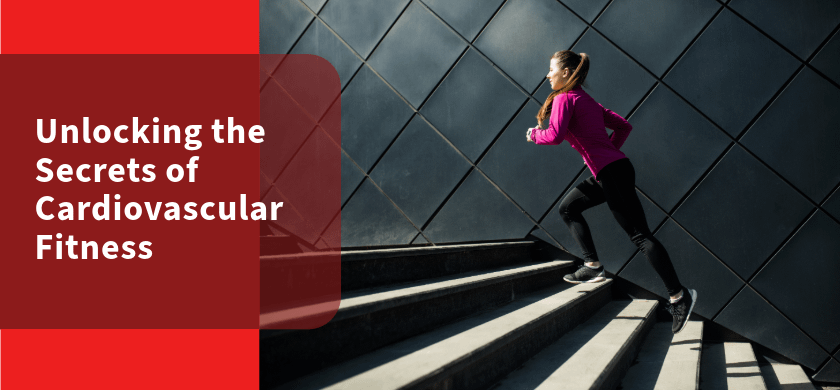Welcome to the fascinating world of cardiovascular fitness, a journey that will help you understand and appreciate the intricacies of your heart and its relationship with your overall health. In this 3000-word article, we will explore what cardiovascular fitness is and why it’s so crucial for everyone. There is no complicated jargon or confusing terms here; we’ll break it down using simple language, personal anecdotes, and even a friendly analogy. So, let’s dive right in!
1. What Is Cardiovascular Fitness?
Cardiovascular fitness, often referred to as cardiorespiratory fitness, is the ability of your heart, lungs, and blood vessels to efficiently supply oxygen and nutrients to your muscles during physical activity. In simpler terms, your heart can pump blood effectively to fuel your body’s needs during exercise. Just like a well-tuned engine powers a car, your cardiovascular fitness fuels your body.
2. Why Is Cardiovascular Fitness Important?
Your heart is the hardest-working muscle in your body, beating around 100,000 times a day. Keeping it in top shape is vital for your overall health. Cardiovascular fitness reduces the risk of heart disease, stroke, and various other health issues. It also enhances your endurance, making everyday activities easier.
3. The Heart: Your Body’s Engine
Think of your heart as the engine of your body. It pumps blood through a network of arteries and veins, delivering oxygen and nutrients to your cells and carrying away waste products. The stronger and more efficient your heart is, the better it can perform this essential task.
4. How to Measure Cardiovascular Fitness
One way to measure your cardiovascular fitness is through your resting heart rate. The lower it is, the fitter you may be. Another indicator is your ability to recover quickly after exercise. A faster recovery time indicates better cardiovascular fitness.
5. Exercise and Cardiovascular Fitness
Exercise is a powerful tool for improving cardiovascular fitness. Activities like brisk walking, jogging, cycling, and swimming get your heart rate up and challenge your cardiovascular system. Aim for at least 150 minutes of moderate-intensity exercise per week.
6. Nutrition and Cardiovascular Health
Eating a heart-healthy diet rich in fruits, vegetables, whole grains, lean proteins, and healthy fats supports cardiovascular fitness. Watch your salt intake and stay hydrated. A well-balanced diet complements your exercise routine.
7. Sleep and Stress: Surprising Factors
Believe it or not, sleep and stress play significant roles in cardiovascular fitness. Chronic stress and poor sleep can lead to high blood pressure and heart problems. Prioritize relaxation and quality sleep to protect your heart.
8. Benefits Beyond the Heart
Cardiovascular fitness offers more than just a healthy heart. It boosts your energy levels, helps with weight management, and enhances your mental well-being. You’ll feel more energetic and less stressed in your daily life.
9. Cardiovascular Fitness Myths Debunked
Let’s debunk a common myth: you don’t need to be an athlete to have good cardiovascular fitness. Everyone can improve their heart health, regardless of age or fitness level. Start slow and gradually increase your activity.
10. Stay Safe While Pursuing Cardiovascular Fitness
Safety first! If you’re new to exercise, consult with a healthcare professional. Listen to your body, and don’t push yourself too hard too soon. Remember, it’s a journey, not a race.
11. Cardiovascular Fitness for Different Age Groups
Cardiovascular fitness requirements change with age. Younger individuals may focus on vigorous activities, while older adults benefit from moderate-intensity exercises. Consult your doctor for personalized advice.
12. Incorporating Cardiovascular Fitness into Your Daily Life
You don’t need to block hours for workouts. Incorporate physical activity into your daily routine – take the stairs, walk during breaks, or bike to work. Small changes add up over time.
13. The Road to a Healthier Heart
To embark on the road to a healthier heart, make a plan, set achievable goals, and track your progress. Remember, consistency is key. Your heart will thank you in the long run.
14. Conclusion: Your Heart, Your Lifeline
In conclusion, cardiovascular fitness is your lifeline to a healthier, happier life. It’s about nurturing your heart, your body’s engine, and ensuring it runs smoothly. You can safeguard your heart’s health by incorporating exercise, a balanced diet, good sleep, and stress management.
15. Frequently Asked Questions (FAQs)
1. What’s the best exercise for cardiovascular fitness?
The best exercise is one that you enjoy and can do consistently. It could be walking, jogging, swimming, or dancing.
2. How can I measure my resting heart rate?
Measure your resting heart rate in the morning before getting out of bed. Use your wrist or neck and count the beats for 60 seconds.
3. Can I improve my cardiovascular fitness without going to the gym?
Absolutely! Many effective exercises can be done at home or in the great outdoors. No gym membership is required.
4. How can I reduce stress for better cardiovascular fitness?
Stress reduction techniques like meditation, yoga, and deep breathing can be beneficial in improving your cardiovascular fitness.
5. Are there any foods that specifically boost cardiovascular fitness?
Foods rich in omega-3 fatty acids (like salmon and walnuts) and antioxidants (found in berries and dark chocolate) are excellent choices for heart health.
Now that you’ve unlocked the secrets of cardiovascular fitness, it’s time to take action. Your heart is counting on you, and with the right knowledge and approach, you can ensure it continues to beat strong for a long and happy life.

